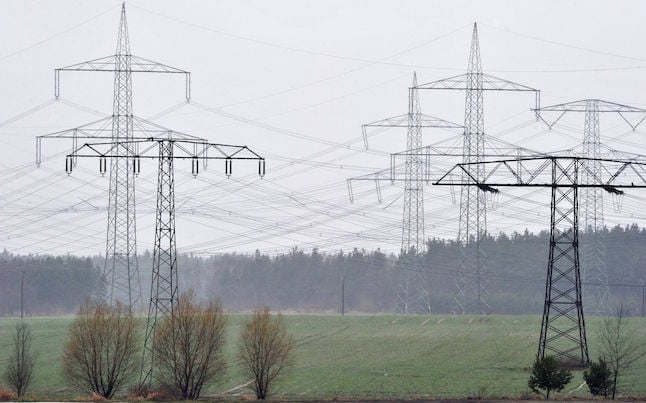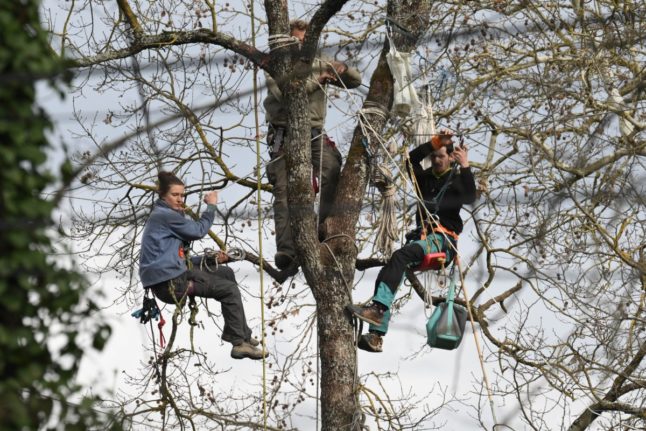“I am not saying that the energy transition is not necessary. But we don’t want these pylons,” Hartmut Lindner, 75, told AFP.
Lindner has been campaigning for 15 years against a planned high-voltage power line in the Schorfheide-Chorin nature reserve, a few kilometres from Berlin.
Energy company 50Hertz is planning to install around 115 kilometres (71 miles) of new lines between the towns of Bertikow and Neuenhagen, replacing an existing network of smaller pylons.
The new network is intended to supply the region with wind energy produced in northern Germany.
But it could pose a threat to “thousands of species of birds, some of them endangered” in the nature reserve, according to Lindner, a retired teacher.
Together with several hundred local residents, Lindner started a campaign in 2008 to oppose the project.
After years of public consultations and discussions, he is unhappy about the “lack of response” from 50Hertz, which has refused to change the route of the line and began construction work earlier this year.
12,000 kilometres
Lindner is one of a growing number of Germans fighting against the construction of electricity pylons near their homes, a trend that risks slowing down the transition to renewables.
The country is planning to phase out both coal and nuclear energy in the coming years, with renewables such as wind energy playing an increasingly important role in keeping the lights on.
“The problem is that wind energy is produced largely in the north, while many needs, especially industrial ones, are in the south. This electricity must therefore be transported using new networks,” Dierk Bauknecht, an expert at the Oeko-Institut research centre, told AFP.
To meet these needs, the German government has launched more than one hundred new power line projects over the past few years spanning 12,000 kilometres, according to official figures from the economy ministry.
And the trend looks set to continue, with Germany’s new ruling coalition of the Social Democrats, Greens and Free Democrats aiming for renewables to make up 80 percent of the energy mix by 2030.
‘Too slow’
But the construction work on new power lines has been “too slow” due to “procedures” and “local resistance to these projects”, Bauknecht said.
According to a study by energy price comparison company Check24, the German network will be expanded by only 120 kilometres in 2021 – a third less than in 2020.
If nothing is done to speed up the process, Germany could “miss its objectives in terms of ecological transition”, Bauknecht said.
In a bid to address the problem, Berlin introduced new rules last year that simplify the bureaucratic procedures required for the approval of power lines and limit the possibilities for appeal.
But Lindner and his fellow campaigners, backed by environmental association NABU, still won a key legal victory this summer leading to the temporary suspension of construction on a section of the 50Hertz line.
A court will decide next year whether 50Hertz can continue with construction as planned or whether it must yield to the campaigners’ demands that it be rerouted or moved underground to protect the region’s biodiversity.
Such solutions have so far been ruled out by 50Hertz, which considers them too expensive.
50Hertz did not immediately reply to AFP’s requests for comment.
In a field a few kilometres from Lindner’s house, the huge pylons have already been built. But he still has hope of saving the wetlands a few hundred metres away, along with the birds that inhabit them.
“We must protect this unique place,” he said.



 Please whitelist us to continue reading.
Please whitelist us to continue reading.
Climate change IS an emergency. Unfortunately, local concerns must be subservient to the national ones. The power lines are not going over his house, they are going through a reserve. Power lines have been around for a hundred years. They aren’t necessarily pretty, but they are necessary. And if that gentleman wants electricity and not to go back to the 1800s – they must be built.